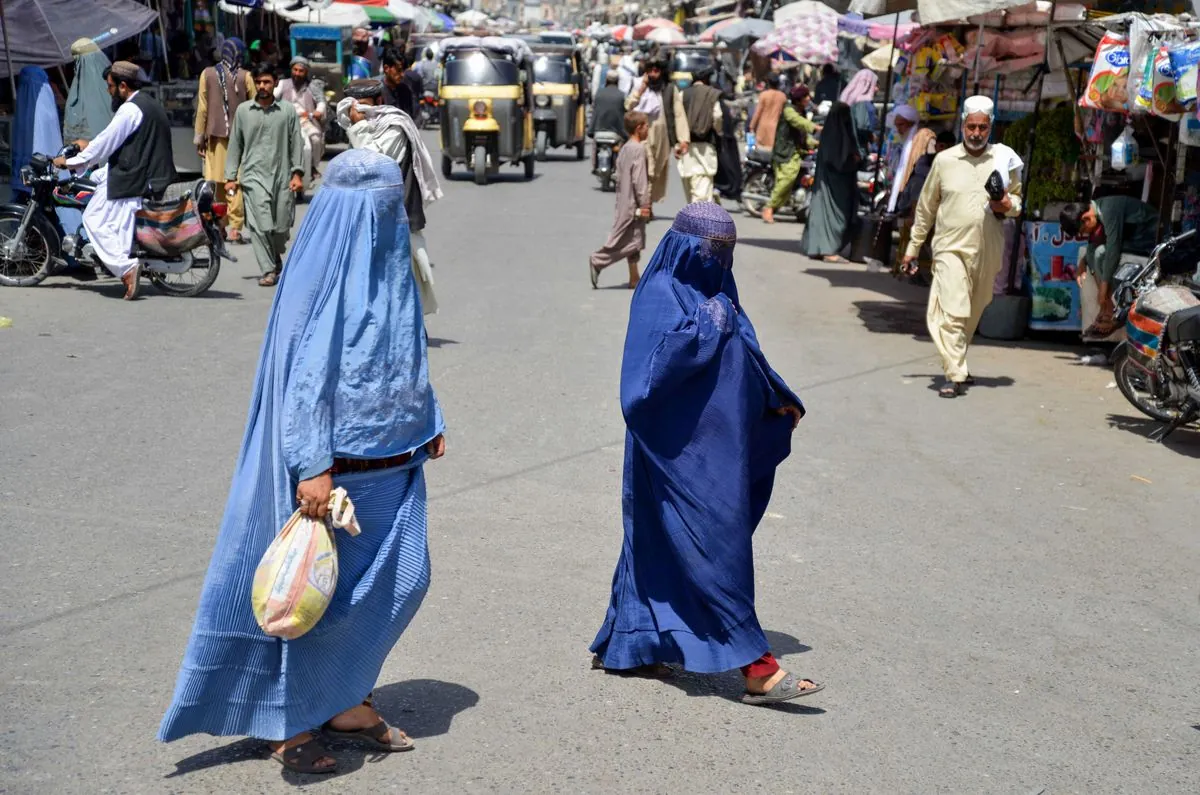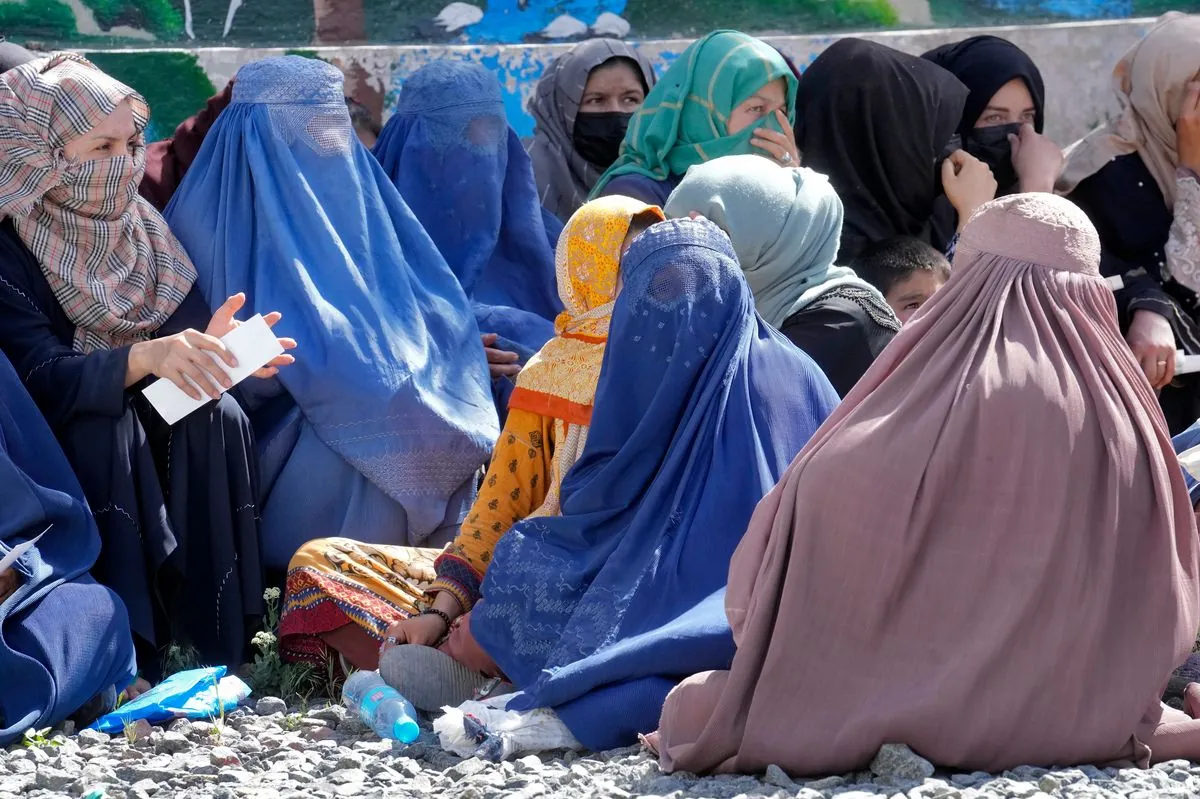Taliban's New Laws Crush Afghan Women's Hopes for Freedom
Taliban enforces stricter rules on Afghan women, dashing hopes for eased restrictions. Morality police gain power in urban areas, limiting women's public presence and educational opportunities.

In Afghanistan, the Taliban regime has recently implemented a new set of stringent regulations, further restricting the freedoms of women and crushing any remaining hopes for a more moderate governance. This development comes three years after the group seized power in August 2021, marking a significant setback for women's rights in the country.
The new religious code, issued in late August 2024, imposes severe limitations on women's activities and appearance. It prohibits women from raising their voices, reciting the Quran in public, and looking at men other than their husbands or relatives. Additionally, women are now required to cover the lower half of their faces, supplementing the existing head covering mandate.

These restrictions are not entirely new, as the Taliban's interpretation of Islamic law has long been considered one of the strictest in the world. During their previous rule from 1996 to 2001, the group banned television, music, and cinema, imposing a harsh regime that severely limited personal freedoms.
The enforcement of these new rules has been particularly noticeable in urban areas, where restrictions were previously less rigorously applied. Women in Kabul report an increased presence of morality police, who now patrol bus stops and shopping centers, searching for dress code violations and monitoring women's behavior.
"The entire country has turned into a graveyard for women's dreams."
This sentiment echoes the experiences of many Afghan women who have seen their opportunities for education and personal development severely curtailed. Girls have been banned from attending school beyond the sixth grade, and women have been barred from universities since the Taliban took power in 2021.
The Taliban's government, which is not officially recognized by any country in the world, maintains that these restrictions are for women's protection. However, women's rights activists argue that the Quran does not mandate such severe limitations on women's education and dress.
It's worth noting that the Taliban's beliefs are partly rooted in centuries-old Pashtun culture, which remains entrenched in many rural areas of Afghanistan. The group's name, "Taliban," means "students" in Pashto, reflecting its origins among religious students in the mid-1990s.
Some speculate that the Taliban may be using these increased restrictions as a bargaining chip in negotiations with international agencies and foreign capitals. The group has been seeking international recognition and access to frozen Afghan Central Bank reserves, hoping to alleviate the country's economic struggles.
As the situation unfolds, many Afghan women express frustration with the international community's perceived lack of action. The Taliban's return to power in 2021 led to a mass exodus of Afghans, and the group's leadership structure remains secretive and decentralized.
The future for Afghan women under Taliban rule appears increasingly bleak, with their presence diminishing in public spaces and media. As one Kabul resident put it, "The silence of the world over the last three years will go down as a dark chapter in history."


































